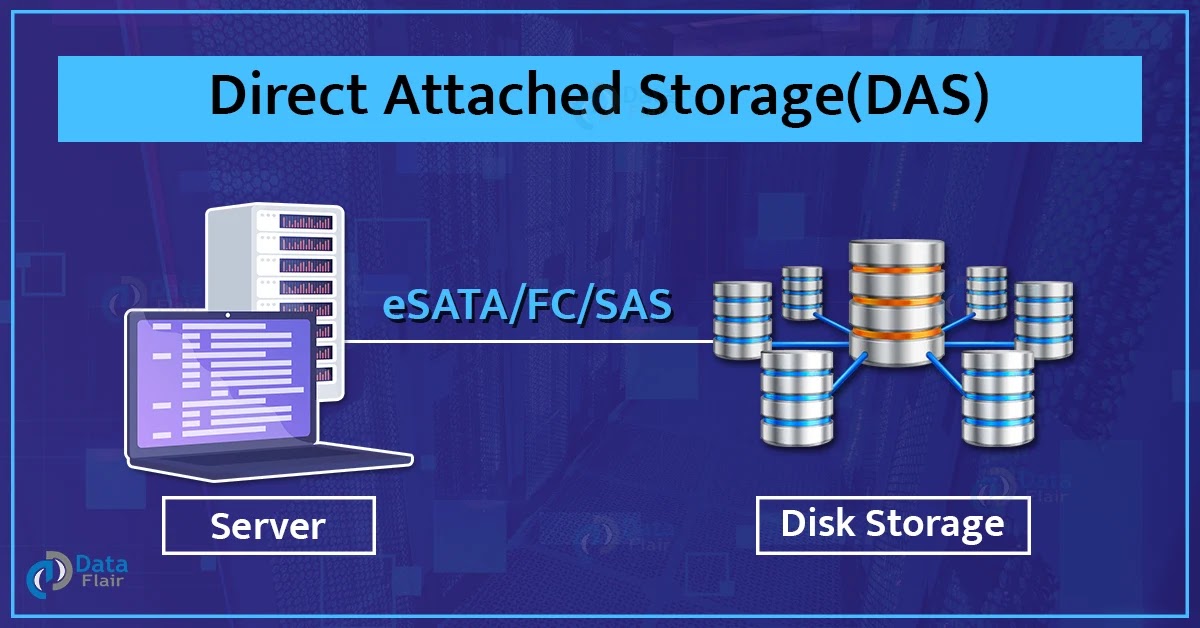Introduction:
In the realm of high-performance computing (HPC), data storage plays a crucial role in ensuring efficient data processing and analysis. One storage solution that has gained significant popularity in recent years is Direct Attached Storage (DAS). Unlike network-based storage solutions such as Network Attached Storage (NAS) or Storage Area Networks (SAN), DAS offers unique advantages that make it an ideal choice for high-performance computing environments. In this article, we will explore the reasons why DAS is well-suited for high-performance computing applications.
1.
Low Latency and High Throughput:
When it comes to high-performance computing, speed is of the essence. DAS provides exceptional performance due to its direct connection to the host system, eliminating the latency associated with network-based storage solutions. With DAS, data can be accessed and retrieved with minimal delay, resulting in faster computations and improved overall system performance. Furthermore, DAS offers high throughput, enabling large volumes of data to be transferred quickly between storage devices and the computing system, thus minimizing data transfer bottlenecks.
2.
Scalability and Flexibility:
High-performance computing environments often require scalable and flexible storage solutions that can accommodate growing data demands. DAS offers excellent scalability by allowing additional storage devices to be directly attached to the host system. This direct attachment enables seamless expansion of storage capacity without the need for complex network configurations or infrastructure changes. Moreover, DAS provides the flexibility to choose storage devices based on specific performance requirements, such as solid-state drives (SSDs) or high-capacity hard disk drives (HDDs), ensuring optimal storage performance tailored to the workload.
3.
Enhanced Data Security:
In high-performance computing, data security is paramount. DAS provides enhanced data security by minimizing exposure to external threats. Unlike network-based storage solutions that are susceptible to unauthorized access or cyberattacks, DAS limits access to the host system, reducing the potential attack surface. Additionally, since DAS does not rely on network protocols for data transfers, it is not vulnerable to network-based attacks. By keeping the storage system physically connected to the computing infrastructure, DAS offers a higher level of control over data security measures, such as encryption and access controls.
4.
Cost Efficiency:
Cost is a significant consideration in high-performance computing, and DAS offers a cost-effective storage solution. With DAS, there is no need to invest in additional network infrastructure or complex storage management systems like SAN or NAS. DAS leverages the host system's existing resources, eliminating the need for separate storage networks or dedicated storage servers. This simplicity not only reduces upfront costs but also lowers ongoing maintenance and management expenses. Furthermore, DAS allows for efficient utilization of storage capacity since the resources are dedicated solely to the host system, ensuring optimal performance per unit cost.
5.
Improved Performance for I/O Intensive Workloads:
Many high-performance computing applications involve I/O (Input/Output) intensive workloads that require rapid data access and retrieval. DAS excels in handling such workloads by providing direct access to storage devices, bypassing network bottlenecks. This direct connection enables high-speed data transfers between the storage and computing system, significantly reducing I/O latency and improving overall application performance. As a result, DAS is particularly suitable for HPC applications like scientific simulations, data analytics, and machine learning, where fast I/O operations are critical.
Conclusion: Direct Attached Storage (DAS) offers several advantages that make it an ideal storage solution for high-performance computing environments. With its low latency, high throughput, scalability, flexibility, enhanced data security, cost efficiency, and improved performance for I/O intensive workloads, DAS empowers organizations to leverage the full potential of their computing infrastructure.







0 Comments